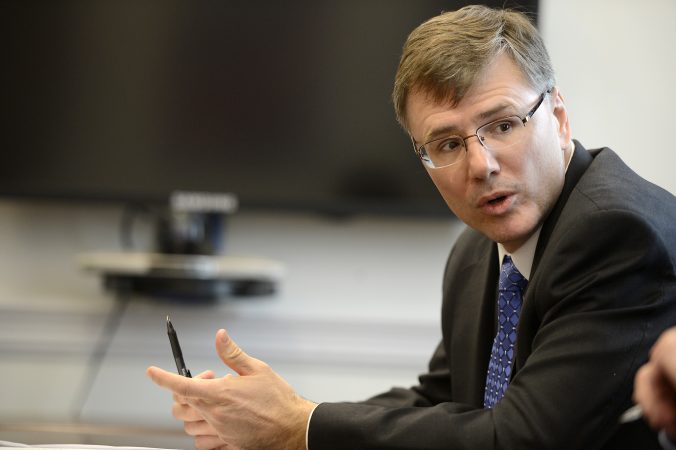President-elect Donald Trump has picked Dr. Troy E. Meink to become the next Secretary of the Air Force, he announced Jan. 16.
Meink is currently the principal deputy director of the National Reconnaissance Office, a Department of Defense intelligence agency that works closely with the Space Force.
If confirmed, Meink would be the first Air Force Secretary to come to the job from the NRO in decades—Hans Mark served concurrently as Undersecretary of the Air Force and head of the NRO before becoming Air Force Secretary in 1979 and John L. McLucas served as the fourth director of the NRO before becoming Air Force Secretary in 1973.
Since then, other Air Force secretaries have had some background in space—Barbara Barrett and Edward Aldridge were both trained for space flight, Michael Wynne and John J. Welch Jr. both oversaw space divisions within defense industry, and Robert Seamans and Mark were both deputy NASA administrators.
But Meink would be unique given how deep his experience is at the intersection of defense and space. While he served in the Air Force as a KC-135 tanker navigator from 1988-1993, he spent much of his career as a civilian working for the Air Force in various space roles, including as the deputy undersecretary of the Air Force for space. He has been at the NRO for years, having been appointed to his current role under the previous Trump administration.
Before becoming the NRO’s current No. 2 in 2020, Meink was the director of Geospatial Intelligence Systems Acquisition (GEOINT) at the agency and responsible for a $15 billion budget overseeing acquiring satellite systems.
Meink’s selection may be a significant boost for the Space Force—USSF leaders have said their service needs more resources and manpower to keep up with a growing mission set, as they face their first ever budget cut in 2025. Trump is seen as friendly to the Space Force, having championed its creation in his first term, and Meink would be perhaps the most space-knowledgeable senior leader in the Pentagon.
If confirmed, Meink will step on the other side of an ongoing debate between the Space Force and the NRO and other Intelligence Community agencies over roles and responsibilities for intelligence, surveillance, and reconnaissance from space.
Beyond that, however, Meink will face major questions during the confirmation process and early in his tenure about how to handle the Air Force’s Next-Generation Air Dominance program, Collaborative Combat Aircraft drones, and the over-budget and behind-schedule Sentinel intercontinental ballistic missile.

The Department of the Air Force pick had been a notable hole in Trump’s planned national security team.
Pete Hegseth, a former Fox News host and Army National Guard officer, is Trump’s pick to be the 29th Secretary of Defense. Hegseth had a confirmation hearing in front of the Senate on Jan. 14 and appears likely to be confirmed despite allegations of personal misconduct and intense criticism from Democrats.
“Troy will work with our incredible Secretary of Defense Nominee, Pete Hegseth, to ensure that our Nation’s Air Force is the most effective and deadly force in the World, as we secure PEACE THROUGH STRENGTH,” Trump wrote in a post on his social media network Truth Social.
Meink would round out Trump’s picks for service secretaries. Trump named John Phelan, a businessman donor with an MBA from Harvard, to be Secretary of the Navy and Daniel P. Driscoll, an Army veteran and Yale Law School graduate, to lead the Army. Driscoll has been a senior advisor to fellow Yale Law grad Vice President-elect J.D. Vance.
Stephen Feinberg, financier, is Trump’s pick for Deputy Secretary of Defense, and Elbridge “Bridge” Colby has been named to lead the Pentagon’s policy shop.
News Editor Greg Hadley contributed to this report.


